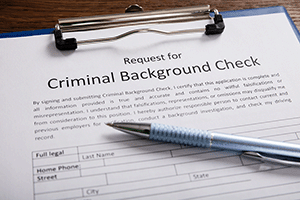How to Run a Criminal Background Check
Understanding Florida Criminal Background Checks
The name might sound self-explanatory, a Florida criminal background check, but there is more than one type of check that you can run. To look at someone's background record is to verify who they are if they have a criminal past. These might be used for employment, housing applications, security clearances, or personal verification. The type of check you will run will depend entirely on how it is to be used.
So, let's dive right in and show you the different ways of running a Florida criminal background check. By the end, you'll have a comprehensive understanding of this process and what resources you can use for various utilities.
The Importance of Running a Florida Background Check
By looking at a criminal person's past and recorded public record, is basically what a background check is. These are abstracts of a person's history both criminal and civil. Many times these are a necessary part of the employment process, or obtaining a security clearance. But, there are a multitude of utilities these can be used for. In the last several years they have become increasingly popular for personal verification. Perhaps someone wants to know about a neighbor, co-worker, or potential date with someone. These very important for many reasons, as they are part of a person's permanent record that follows them anywhere.
If someone is found to have a misdemeanor, a felony, a DUI, or have been arrested, it can be quite disparaging. This can limit many opportunities such as getting a new job, obtaining a passport for travel, or even being able to vote. On a personal level, these can be very damaging to relationships if someone finds out the other person has a criminal past. A checkered past can lead to distrust or even become a deal-breaker for some.
Official Florida Criminal Background Checks
An official Florida criminal background check is governed by several state and federal laws and regulations. These create a framework to ensure the process is conducted in an ethical manner that protects the rights of the anyone being checked. Official checks can be run through the FL Department of Law Enforcment (FDLE), or other verified third party resources that follow the guidelines below.
Some of the most significant laws and regulations include:
1). The Fair Credit Reporting Act (FCRA): This federal law regulates how consumer reporting agencies use personal information.
2). The FL Statutes Section 435.04: This state law outlines the requirements for level two background checks.
3). Statutes of Limitations: Also known as the "seven-year rule". This effectively limits the reporting of certain criminal records to seven years.
4). The Americans with Disabilities Act (ADA): This law prohibits discrimination based on disability during the hiring process.
Level 2 Criminal Background Checks
There are two levels of official background checks: Level One and Level Two. Each level offers different depth of information and is used for different purposes. Level One is a state-only name-based check. It includes employment history checks, statewide criminal history checks, and checks against the Florida Sex Offender Registry. However, it does not include fingerprint-based checks. On the other hand, Level Two is a state and national fingerprint-based check. These will give a more in-depth review and are primarily required for positions that involve trust or responsibility for sensitive positions. Understanding the difference between these two levels can be helpful in deciding what you need and what they are used for.
The Level Two check includes:
1). Statewide criminal history checks
2). National criminal history checks
3). Checks against the FL Sex Offender Registry
4). Checks against the FBI's national database
How Far Back Do Criminal Background Checks Go in Florida?
The depth of a criminal background check depends on the type of check conducted. For Level One checks, the state most commonly reports criminal history information for the past seven years. This is often referenced as the "seven-year rule."
However, Level Two checks can offer up a lot more extensive criminal history and information about a person's past. These checks can potentially uncover criminal records dating back to an individual's 18th birthday, and sometimes earlier. It's important to note that certain convictions, such as those for serious or violent crimes, may appear on a background check regardless of when they occurred.
Interpreting the Results: What Information Is Included?
Running a check on someone's criminal past can reveal a wealth of information. This includes personal details like full name, date of birth, addresses and phone number. It also includes criminal history, such as arrests, convictions, and incarcerations.
These reports may also contain information about any outstanding warrants or criminal court records. It's important to understand that the presence of a criminal record does not necessarily imply guilt. Arrests and warrant for example do not always lead to a criminal conviction. Each record should be evaluated carefully, considering the nature type of offense, the date it occurred, and any surrounding circumstances.
Rights and Responsibilities: Compliance with Background Check Laws
Conducting a Florida background check comes with certain ethical and legal responsibilities. For example, the Fair Credit Reporting Act (FCRA) requires employers to obtain written consent before running a a check on a potential employee. They must also provide a copy of the report and a summary of rights to the respective potential employee, if there are any plans to take adverse action based on the report. These checks should only be used according to the specific uses and intent of the type of check being run. If this is for a personal, or un-official check, then it's up to the end user to use the information obtained in a lawful and ethical way. it is illegal to harass or intimidate anyone with information they find online.
Can Anyone Run a Florida Background Check
Yes, since the information included in someone's background is considered public record, anyone can access this information. A good way to go about this is to use a public records site. These resources are quick and easy to use and allow users to run comprehensive background checks with just a first and last name.


